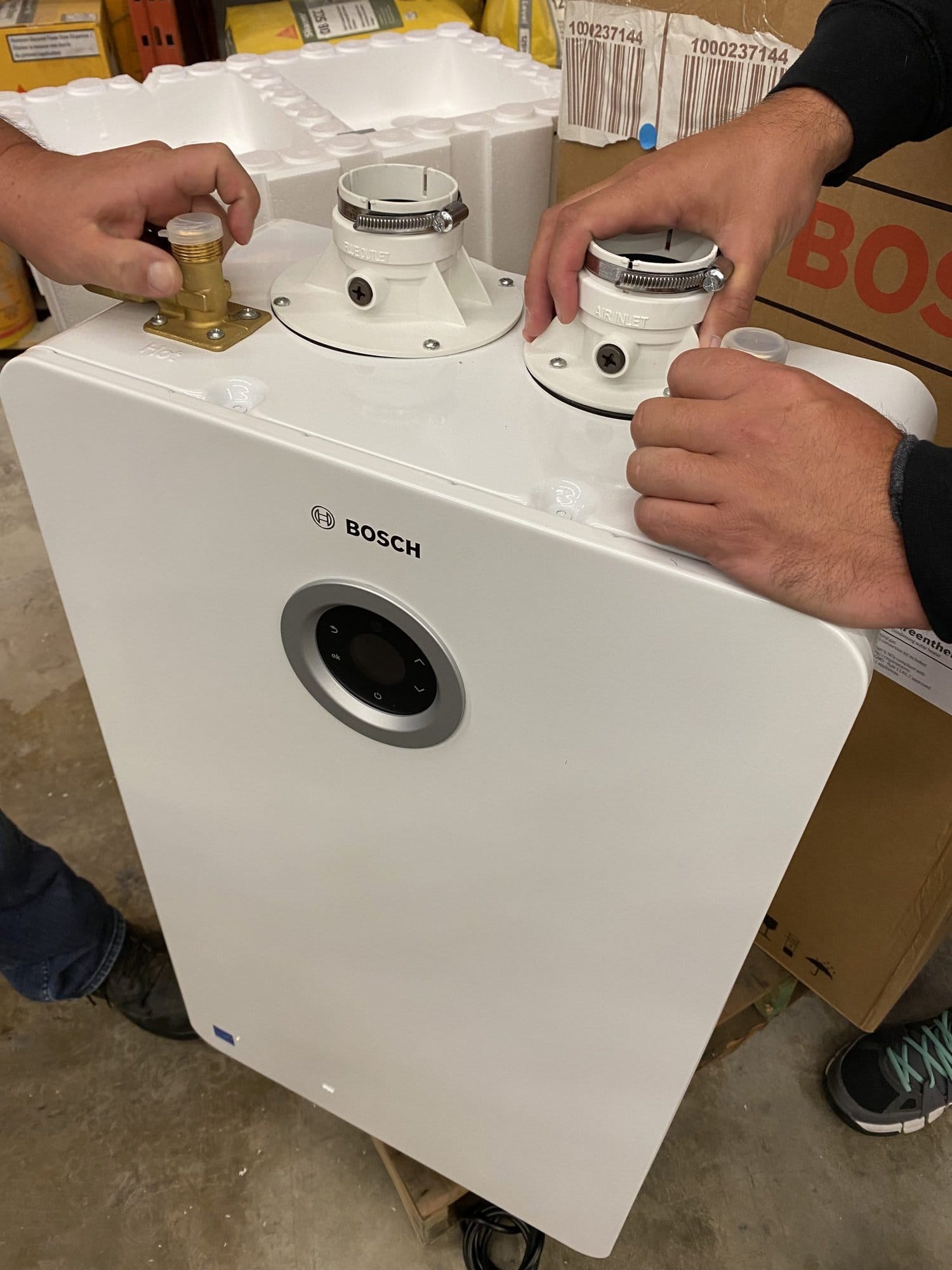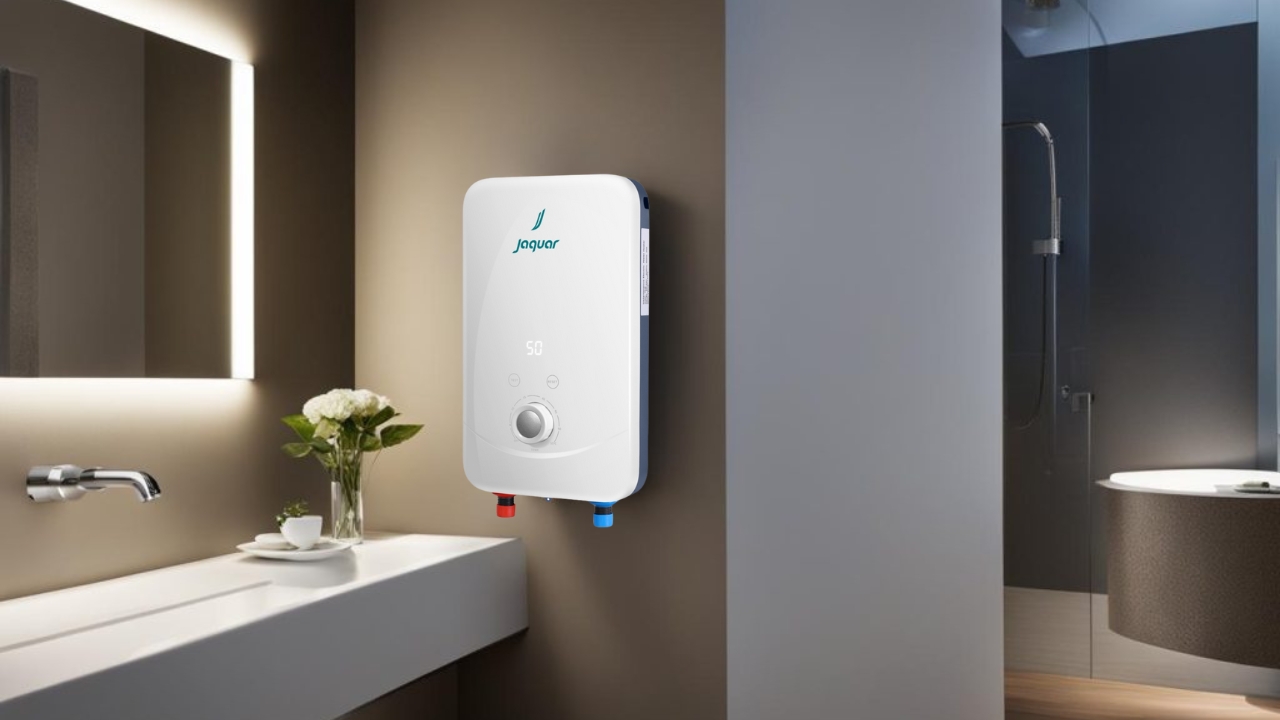My Route To Obtaining The Benefits Of Tankless Water Heaters
My Route To Obtaining The Benefits Of Tankless Water Heaters
Blog Article
We have encountered the article relating to Why You Should Consider a Tankless Water Heater listed below on the internet and believe it made perfect sense to share it with you here.

In a world where ease and efficiency preponderate, it's no surprise that home owners are frequently looking for smarter means to handle their home's energy consumption and comfort. One advancement that has actually progressively gained popularity is the tankless hot water heater. Yet exactly what makes these systems stick out from the traditional tank-based models most of us grew up with? Let's dive in and check out the advantages of tankless hot water heater, assisting you choose if it's time to make the button in your home.
Introduction
Photo this: you enter the shower after a long day, anticipating a soothing cascade of hot water, just to be greeted by icy droplets since the last person utilized all of it up. Noise familiar? Standard hot water heater keep a fixed amount of hot water, meaning you go to the mercy of that tank's supply. Tankless systems, on the other hand, heat water on demand. No more running out mid-shower, no more fumbling with schedules just to make certain warm water is readily available.
Understanding Tankless Water Heaters
What Are Tankless Water Heaters?
Tankless water heaters, sometimes called on-demand or instant hot water heater, provide hot water only as it's needed. As opposed to saving gallons of pre-heated water, these units kick right into activity the minute you switch on the tap. Water passes through a warmth exchanger, warming up in real-time, meaning you obtain a continuous circulation of hot water without the demand for a big tank sitting idly by.
Exactly how Do They Vary from Typical Equipments?
Standard heating units hold a storage tank of hot water, making use of power to maintain that storage tank at a regular temperature level. Tankless devices remove the standing supply, minimizing wasted power and the large impact of a big cyndrical tube. Basically, you're upgrading from a "stockpile" way of thinking to a "made-to-order" strategy.
Common Sorts Of Tankless Devices
Tankless water heaters normally can be found in two ranges: gas and electric. Gas designs have a tendency to deliver higher flow rates, suitable for bigger homes, while electric models frequently offer smaller homes and are normally easier to set up. Additionally, some systems are designed for point-of-use (offering one component) while others can handle the whole home's warm water needs.
Trick Advantages of Tankless Hot Water Heater
1. Unlimited Hot Water Supply
Ever had to arrange showers so every person gets their fair share of hot water? With tankless, that comes to be a distant memory. As long as the heating unit's circulation capacity isn't gone beyond, you can take back-to-back showers without becoming a popsicle.
2. Energy Effectiveness and Cost Savings
Say goodbye to heating a giant container's worth of water and maintaining it cozy all the time. Tankless heating units lower standby energy losses, which can lower energy costs. While the initial expense might be greater, the long-term financial savings usually justify the financial investment.
3. Space-Saving Design
If your home is short on storage, getting rid of the cumbersome tank frees up valuable space. Tankless devices are small and can typically be installed on wall surfaces, hidden in edges, or installed in limited utility wardrobes without hogging the entire room.
4. Longer Life expectancy
A well-kept tankless water heater can outlast its tank-based relative. Typical storage tanks could last 10-15 years, while tankless versions can maintain chugging along for 20 years or more, making them a strong investment gradually.
5. Improved Water Top Quality
Saving water in a tank can in some cases result in sediment accumulation or a slightly "off" taste. With tankless systems, fresh water is warmed instantly, minimizing the possibilities of debris accumulation and possibly providing cleaner-tasting water.
Factors to consider Prior To Switching
Though the benefits are engaging, it's wise to consider a couple of variables prior to totally devoting.
Preliminary Investment Prices
Tankless heating systems typically feature a higher upfront price tag. Between the unit itself and potential installment adjustments, the initial cost may provide you sticker label shock. But keep in mind to watch it as a long-lasting financial investment.
Setup Requirements
Depending upon your home's framework, you may need extra electrical capability or gas line upgrades. Ensure you recognize the setup demands and consult with an expert to prevent surprises.
Reviewing Your Home's Water Usage Patterns
If your home concurrently utilizes multiple fixtures with high warm water demand, ensure the unit's flow rate fulfills your requirements. Recognizing your usage patterns aids you pick the appropriate dimension and type of tankless heater.
Upkeep and Treatment Tips
Tankless systems are reasonably reduced upkeep, however they aren't set-it-and-forget-it appliances.
Regular Cleansing and Descaling
Difficult water minerals can develop in the warmth exchanger, impacting efficiency. Normal descaling (typically recommended yearly) maintains the unit running at peak performance.
Yearly Professional Assessments
A yearly checkup from an expert guarantees small concerns are captured early. They'll evaluate the device's performance, try to find leakages, and assist keep optimal effectiveness.
Making Sure Proper Ventilation
For gas models, appropriate air flow is important to safely eliminate exhaust gases. Ensure venting systems are clean and correctly installed to prevent any kind of prospective security risks.
Contrasting Different Brands and Versions
Not all tankless hot water heater are developed equal.
Researching Trustworthy Producers
Try to find trustworthy brand names with a background of generating top quality systems. A trusted manufacturer usually supplies far better consumer assistance and longer guarantees.
Checking Out Reviews and Customer Comments
Individual evaluations and feedback from neighbors or close friends who have gone tankless can use valuable insights. In some cases, real-life experiences can be a lot more telling than advertising and marketing sales brochures.
Installment: DIY or Specialist?
While some homeowners cherish taking on jobs themselves, tankless installation might not be the most effective time to break out the tool kit.
Pros and Cons of DIY Installment
A DIY install might save money, yet it comes with threats. Inaccurate setup can lead to ineffectiveness or safety and security concerns. If you're handy and have experience, it could be feasible-- however wage caution.
When to Call a Professional Plumbing
For the majority of, calling a pro makes sure every little thing's done correctly. An expert plumber recognizes neighborhood codes, sizing needs, and venting parameters, reducing the threat of accidents.
Taking full advantage of Performance
You have actually purchased a tankless unit-- currently maximize its efficiency.
Optimum Temperature Level Settings
The majority of people set their systems between 120-140 F. Adjusting the temperature level can improve convenience and cost savings. Experiment to discover a wonderful spot that does not waste energy.
Pairing with Low-Flow Fixtures
Wish to stretch your unit's capacities? Think about installing low-flow showerheads and faucets. They lower water usage, enabling your tankless system to provide a steady stream of warm water without stressing.
Ecological Influence
Tankless hot water heater straighten with greener living goals.
Lowered Carbon Footprint
By utilizing less energy and only heating water as required, tankless systems can lower your home's carbon footprint, reducing your environmental effect.
Saving Natural Resources
Much less power usage and much less wasted warm water convert right into less natural resources being used, an ecological win-win.
Who Profits Many from Tankless Heating units?
The elegance of tankless heating systems is that they can match a selection of households.
Large Family Members vs. Solitary Passengers
Huge families may love the limitless hot water supply, while solitary passengers value the energy cost savings from not heating a whole tank for simply someone's morning shower.
Homeowners with Minimal Space
If your home is short on square footage, losing the bulky tank liberates space for other fundamentals-- or maybe simply much more elbow room.
Eco-Conscious Consumers
Going tankless aligns with eco-friendly worths, ensuring you're not wasting power or resources.
Future Trends in Tankless Water Heaters
The world of home devices is ever-evolving, and tankless water heaters are no exception.
Smart Home Integration
Imagine adjusting your water heater's temperature by means of an application or receiving maintenance signals on your phone. As smart home tech advancements, we'll see even more connection and ease.
Innovations in Modern technology
R&D is frequently enhancing heat exchangers, making systems more reliable and long lasting. Future designs could be also quieter, a lot more portable, and far better matched for differing environments.
Final thought
Selecting a tankless hot water heater is greater than just upgrading your home's warm water system; it's buying long-term convenience, energy effectiveness, and a greener way of living. By considering your house's water usage, being mindful of installment needs, and dedicating to normal upkeep, you can enjoy a constant stream of hot water without the luggage of a cumbersome tank. As innovation advances, you can eagerly anticipate also smarter, much more effective tankless services that not only make your life less complicated yet also benefit the planet.
Pros and Cons of Tankless Water Heaters
Tankless Water Heater Pros
Saves Energy: Simply put, you re spending less energy to create hot water, so your total carbon footprint goes down, not to mention your bills. Lasts Longer Than Storage Tanks: Storage tank units need to be replaced every 15 years or so. But tankless units? They can last for 30 years before they give out on you. Constant Hot Water: Need to take a shower and don t want the water running cold? Awesome it won t. The water will stay hot the entire time because it creates hot water on demand. Saves You Money: Less water usage equals less money. Beyond that, you re not paying to keep water hot 24/7. Those savings add up quickly. Better for the Environment: Less water waste is better for everyone. It saves you money, but it s also environmentally conscious at the same time. Tankless Water Heater Cons
It Can Take a Minute: Depending on your specific unit and its placement, it can take anywhere from 10 seconds to 2 minutes to fully heat up. Because there s no storage tank, it heats water as you need it. Upfront Purchase Price: While we talked about their longevity, there s sticker shock when you look at brand-new tankless units to install. It pays for itself, but it s still a big chunk of change at first. Has its Limits: If you run multiple appliances at once, such as the dishwasher, washing machine, and maybe you take a shower at the same time, there might not be enough hot water. https://www.airsouthnow.com/blog/water-heater-service/pros-and-cons-of-tankless-water-heaters/

Do you enjoy reading up on Why You Should Consider a Tankless Water Heater? Try leaving a short review directly below. We would be glad to see your insights about this article. Hoping to see you back again in the future. Are you aware of somebody who is fascinated with the topic? Take a moment to share it. I praise you for being here. Please visit our blog back soon.
Schedule Today Report this page